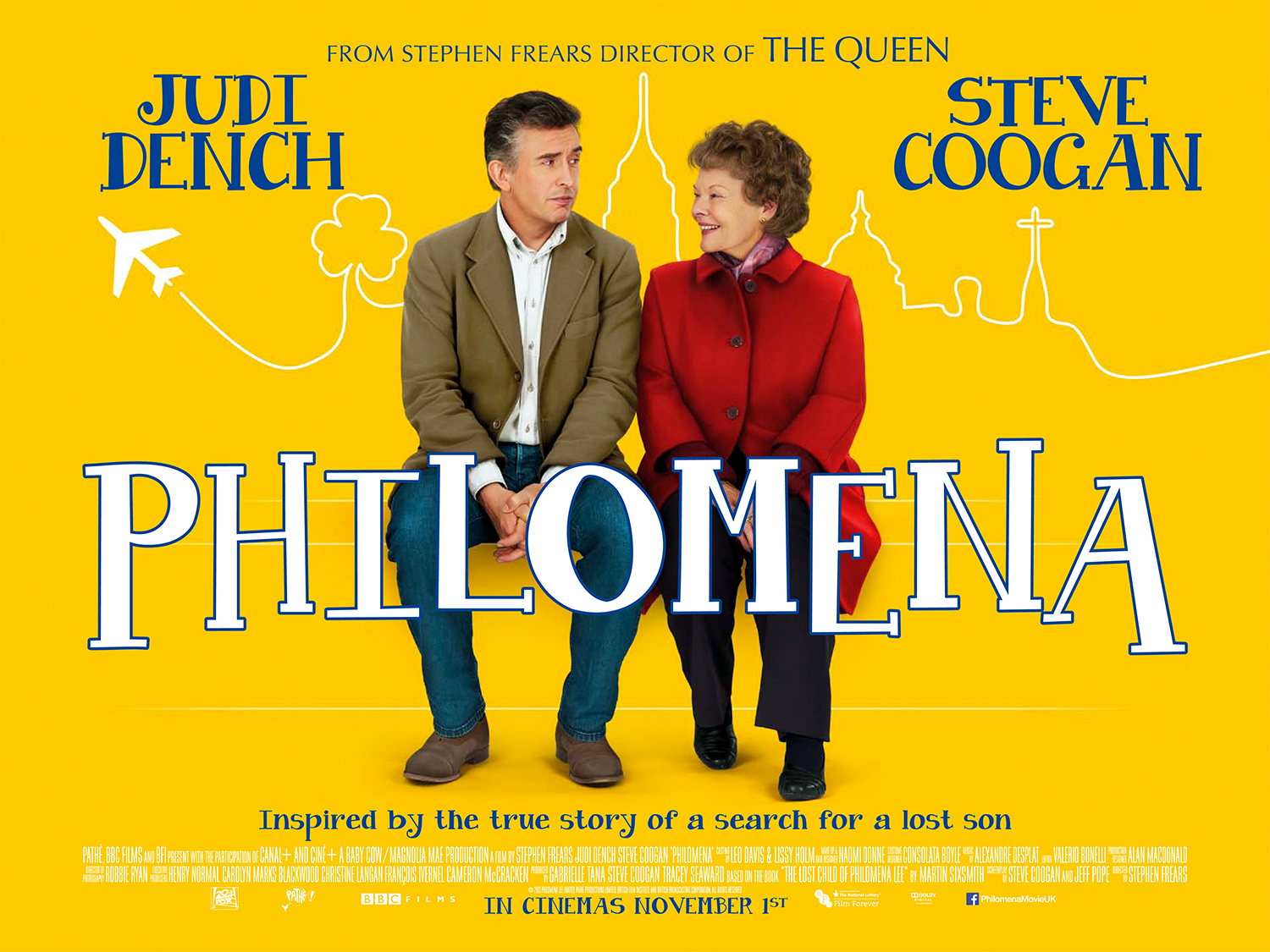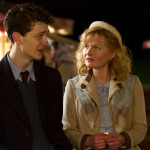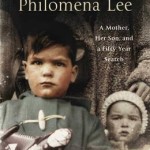Any movie declaring itself to be “wonderfully moving and funny” has something to live up to, though unusually this one lives up to the billing. It did not make me cry (though it has for many), nor especially laugh out loud, but it did win me over by charm, authenticity and a cogently argued case to exposure a gross injustice that the Catholic Church would have preferred to remain hidden and quietly forgotten. If there is a moral it is this: never trust nuns, for some can be more sinful and unchristian than anyone in pursuit of their mission – or imbued in what was at least then a cruel and barely charitable culture within their church, one where chastity is prized more highly than mercy.
Philomena the movie begins with the moral anguish of a teenager, Philomena Lee, made pregnant in her ignorance in 1952, forced to enter a convent as a “fallen woman” and having her baby sold for cash to an American family ratchets up the emotional Richter scale rapidly. The cruelty and suffering administered by nuns was inhuman as it was evil – as the story gleefully reminds us. Even at the end they show signs no repentance for their sins and their lies, so small wonder Steve Coogan‘s Martin Sixsmith is “fucking angry.” This is all the more relevant when stories like this one are still reaching the headlines, and with records having been destroyed you realise that the full barbaric truth will never emerge:
But Philomena is really that well-honed formula, the road trip movie by two chalk-and-cheese oddballs, in this case journalist Sixsmith and Judi Dench‘s eponymous Irish mother, tracking down her long lost son across America – and back to Ireland – so Sixsmith can pen the story. Like so many movies I’ve reviewed lately, the story just happens to be based on real facts and is adapted from Sixsmith’s book. The movie, as does the book, records Martin and Philomena’s subtly dignified and mutually respectful relationship, in spite of the many predictable differences – one being that he is a non-believer, while she, in spite of her dreadful experiences, retains her faith.
The more surprising element is that they form what could loosely be described as a comedy double act, in a gentle style but a touch of knockabout dialogue works well. Not that this is a movie desperately hunting for gags, but it picks up true observational comedy arising from their predicament. It feels natural, not forced, the dazzlingly light touch coming from skilled performances such that it barely feels scripted – which is as fine as any praise I could possibly muster.
The fact that this barely feels like acting or writing is testament to the quality found within. It is crisply scripted by Coogan and Jeff Pope and nimbly performed by Dench and Coogan. They are without doubt two fine actors, playing off one another with perfect timing. Dench you would expect to master her role with aplomb, though Coogan in a “serious” role is a novelty, one he takes to with casual nonchalance befitting his character but belying fine acting technique. He would be well advised to put Alan Partridge to bed and use his talents to better purpose. More to the point the chemistry between the two blazes in a haze of pheromones; not sexual but definitely drenched in human feeling and bonding. This is frequently the difference between success and failure in movies, yet so often goes horribly wrong.
Another factor in favour of Philomena is that it eschews melodrama in favour of gentle understatement and delicate tone, for which credit is due to the assured direction of Stephen Frears. When Philomena learns her son is dead she cries silent tears but doesn’t make a song and dance about it. When she learns he died from AIDS she reacts with composure and a worldly wisdom that shock those around her, and gives us a titter in the process.
If any tragedy moves us it is that of Pete Olsson, erstwhile partner of Philomena’s late son Anthony/Michael A Hess, who repeatedly declines a meeting, believing the mother had rejected her son – because that is what the nuns told him. As Larkin put it, “man hands on misery to man, it deepens like a coastal shelf.” The most painful miseries are those buried in order to forget or deny truth, because they fester and rankle.
One hopes single mothers can now hold their heads high in Ireland, especially when they are the victims, not the sinners to be punished. One hopes they are offered proper care and support, not forced to give birth without painkillers as atonement for their alleged sins. Equally one can only hope that paedophile priests are given zero tolerance and that churches everywhere act with transparency, decency and within the framework of secular law, though movies like Philomena serve a purpose in bringing home the truths that should rightly lie in the conscience of the perpetrators.
In the meantime, you can still enjoy a fine movie for its beautifully judged delivery, whether or not the message delivers any resonance. But it should.
PS. The exchange of views on Facebook about the movie and my review:
-
Elaine Lawrence Beautifully written, I most definitely must watch this film. Although I agree those responsible should be held accountable and I abhor what they did I cannot bring myself to distrust all nuns. That is a very sweeping judgement, I’m sure there are many nuns who would be equally distressed by what these young women were subjected to and dedicate their lives to helping others.
-
Nigel Dickson Glad you liked it. I did post a few weeks ago that I had watched this movie – slightly reluctantly – on my wife Carol’s recommendation and been blown away. Excellent film. Agree with all your observations regarding scripting and acting, as well as the sense of outrage the film instills. Having said that, the most moving aspect of the film is Philomena’s capacity for forgiveness, her determination not to carry bitterness: the very (Christian) virtues that were originally denied her by the nuns who took her into their ‘care’.
-
Andy Millward Think there’s no doubt that the culture of the organisation allowed the sale of babies, allowing young girls to die needlessly in childbirth and indeed paedophilia to occur unimpeded and with the tacit approval of those in authority, yet in the full and certain knowledge that all were criminal acts – or they would not have been hidden for decades and records destroyed. Whether you consider the individuals personally liable for their actions I will leave to you, but the elder nun in the movie remains unapologetic to the end.
-
Nigel Dickson Yes, I agree with you. And I think that the individuals responsible should be liable for their actions. But that does not negate the spirit and the power of forgiveness.
-
-










